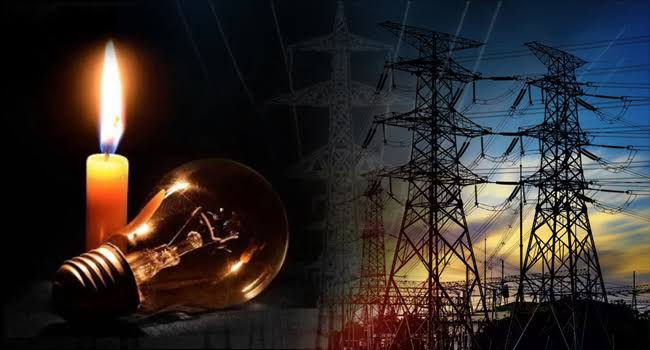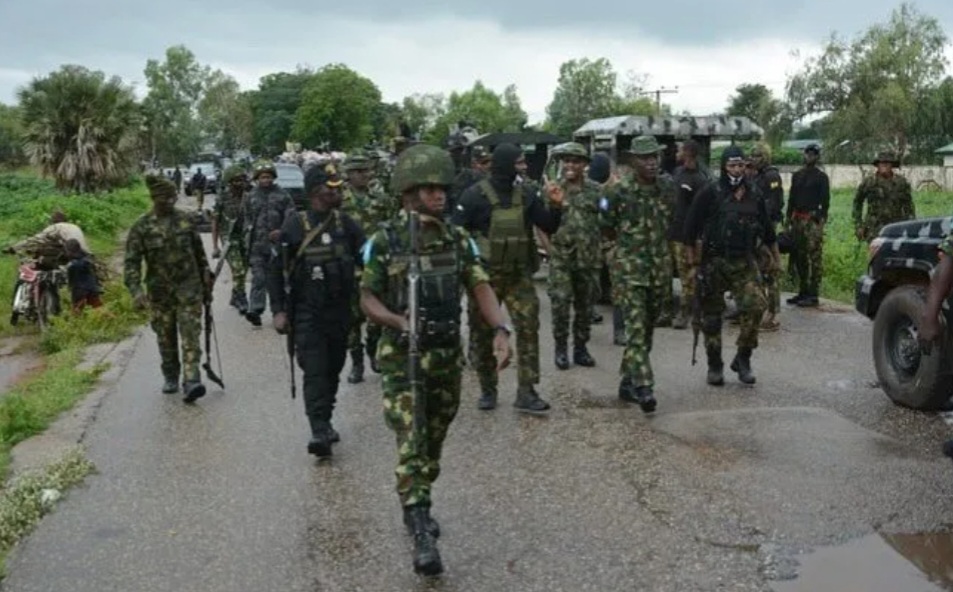ANALYSIS: The Nigeria’s Power System Collapses, Tariff Hike And Supply Conundrum
By Sunday Etuka, Abuja

The Nigerian Electricity Supply Industry (NESI) failed to deliver the expected results in 2024, even after several efforts made for the sector to deliver the electricity needs of both domestic and industrial consumers in Nigeria.
Like in many parts of the world, electricity supply in Nigeria is limited and highly unreliable. Nigeria is currently generating about 5,900 megawatts of electricity despite the demand of 20,000 megawatts, leaving the huge electricity needs unmet.
The country has the highest number of people living without electricity in the world. The World Bank in 2021 puts this figure at about 85 million people who do not have access to electricity, resulting in limited productivity and poor economic growth.
After several decades of epileptic supply under the Federal Government of Nigeria, on November 1, 2013, it handed over eleven (11) distribution companies, and six (6) generation companies to private entities, shifting the burden of process optimisation and capacity expansion to the private sector investors.
This was done after a rigorous privatisation process globally acclaimed as transparent and ambitious, raising about $8.687billion as proceeds from the deal.
Over a decade after the privatisation of the sector, the power monster has not been conquered. The transformation goals of the government appear to have entered a reverse gear as the sector challenges keep multiplying, reversing the previous efforts made.
The electricity market is still facing liquidity problems due to lack of investment and inability to recover 100% of its invoices. There is also a need for the upgrade of manpower of system operators as well as infrastructure to be able to manage the system more efficiently and minimise system collapses.
Industry watchers believe that the government and operators in the electricity value-chain could evolve innovative solutions to get the sector out of the woods.
Failed Power Generation Target
Currently, Nigeria has about 28 power plants that are connected to the national grid, with a total installed capacity of 11,165.4 megawatts, and an average capacity of 7,139.6 megawatts.
Much of this generation is from thermal plants, accounting for 81%, while hydropower plants contribute approximately 17%.
Out of the estimated demand of 20,000 megawatts, only a meagre 4,900MW is distributed to Nigerians, which is grossly inadequate.
Although the Minister of Power, Chief Adebayo Adelabu promised to increase it to 6,000MW before the end of 2024, that was not achieved.
The minister had in his new year message in 2025 attributed the failure to a lack of patriotism among some Nigerians as evident in the vandalism and sabotage of critical power infrastructure. Adebalu has urged then to be more patriotic this year so that such targets can be attained.
TRANSMISSION: System Collapses As Scada Didn’t Takeoff
The transmission network is a critical section of the power sector value chain. However, the current transmission network is old, weak and unreliable. The Transmission Company of Nigeria (TCN) is working to upgrade its assets with the installation of over 45 power transformers last year.
Despite the grid expansion efforts, it cannot efficiently take 5,000MW without system disturbance.
It is on record that over $7.5 billion was invested in transmission alone by the immediate past administration of President Muhammadu Buhari with some of the projects ongoing. This is even as the Japanese International Cooperation Agency recently invested $500 million to enhance transmission infrastructure in southwestern Nigeria.
Despite this huge investment, the national power grid managed by the TCN collapsed 11 times in 2024, throwing the country into total darkness, with adverse economic consequences.
This abysmal performance was attributed to vandalism of power installations across the country, lack of maintenance of equipment, lack of man power, lack of spinning reserve, aged, defective transmission equipment.
The lack of a functional Supervisory Control and Data Acquisition (SCADA) as well as Electricity Management System (EMS) for grid stability dealt a huge blow on the grid. Experts had believed that in 2024, the grid would have the SCADA/EMS tool as outlined by TCN and the minister but that did not happened as the December deadline set to get it working was missed with officials setting a fresh target of early this year.
DISTRIBUTION: Band A Tariff And Too Numerous Complaints To Resolve
The distribution network is adjudged by power sector experts as the weakest in the power value chain. The network managed by the Distribution Companies (DisCos) face issues like low tariffs, high energy losses, inadequate funding and meters.
Industry experts say even with tariff adjustments, many DisCos struggle to pay their total bills to the entire value chain with some paying as low as 8 percent. The blame is on lack of capacity to make the necessary investments to recover costs effectively. To enable meaningful progress, they called for the adequate capitalisation of the DisCos.
They advised the Federal Government of Nigeria to consider removing the huge debts from their books and mandating them to increase their capital by at least USD 500 million each.
In June last year (2024), the Federal Government approved N21 billion for the electricity Distribution Companies (DisCos) to provide meters for electricity customers.
The approval was contained in the NERC order No: NERC/2024/072 on the operationalisation of “Tranche A” of the Presidential Metering Initiative Under the Framework of Meter Acquisition Fund.
Liberalisation Of The Power Sector In Nigeria
On 9 June 2023, the Nigerian Government adopted the Electricity Act 2023, which repealed the Electric Power Sector Reform Act of 2005. The Act introduced a range of key features including the following:
Liberalization of Nigeria’s electricity generation, transmission, and distribution at the national level, empowering States, companies and individuals to generate, transmit and distribute electricity.
Under the Act, States can issue licenses to private investors who may operate mini-grids and power plants within their territory.
In compliance with the Act, the Nigerian Electricity Regulatory Commission (NERC) by December 2024, transferred regulatory oversight of the electricity markets in nine (9) states to their respective State Electricity Regulatory Commissions (SERCs) or bureaus (SERBs). The states are Enugu, Ekiti, Ondo, Oyo, Imo, Edo, Kogi, Lagos and Ogun.
Government’s Plan To Enhance Generation
Apart from the liberalization of the sector, to enhance efficiency and allow states more autonomy in power generation and distribution, the government is gradually repaying the over N3.3 trillion sector debts to improve financial stability.
It is also targeting 350GW of power generation by 2043, and working to attract investments in renewable energy and simplify regulations for rural electrification.
It is intensifying efforts on the Siemens power project for reliable electricity supply to Nigerians.
The Federal Executive Council (FEC) recently approved N262.75billion (€161.33million) for the first phase of the project, which will focus on building and upgrading power substations in five different locations: Onitsha, Offa, Abeokuta, Ayede, and Sokoto.
While there is no doubt that the government is working to improve the power sector, it should be noted that Nigerians will only see the efforts when they start getting stable electricity in their homes and business places. For now, some customers paying high for electricity as Band A tariff with a promise of at least 20 hours of supply have complaints of not getting commensurate service.
Despite this, NERC has continued to approve DisCos request to migrate more customers to Band A. the latest that spilled into the first week of 2025 was the migration of the national assembly complex where Nigerian federal lawmakers work, the judiciary and the State house area to Band A.
While that was happening, the DisCo serving the federal capital territory (AEDC) announced a 14-day power rationing with at least eight hours outage daily due to road construction activities. Nobody has mentioned compensating customers especially those who are on Band A and compulsorily paying for 20 hours of power supply but are having eight hours knocked off!






